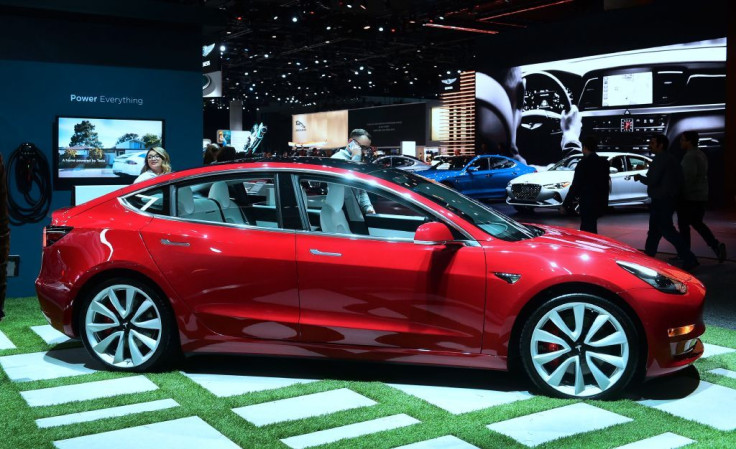Tesla Management Talks Model 3 Gross Margin, Demand Trends, And More In Earnings Call

Tesla (NASDAQ:TSLA) stock was slammed this week. Shares fell 14% on Thursday, following the electric-car maker's second-quarter earnings release. A 134% year-over-year increase and a much narrower loss than in the year-ago quarter weren't enough to impress investors. Instead, worse-than-expected revenue and a wider-than-expected adjusted loss per share overshadowed these factors, spooking some investors.
As investors mull over the company's latest quarterly results, investors can find more insights about Tesla's business in the company's second-quarter earnings call. Three notable topics discussed during the call were the Model 3's gross margin, demand trends, and the importance of word-of-mouth marketing.
An improving Model 3 gross margin
On the surface, investors may have viewed Tesla's automotive gross margin of 19% during Q2 as a negative. After all, the key metric is down from 20% in the first quarter of 2019 and 21% in the year-ago period. But a 19% automotive gross margin is impressive when you consider that the company's lower-cost Model 3 went from accounting for less than half of deliveries in the year-ago quarter to more than 80% in the second quarter of 2019.
Helping explain why Tesla's automotive gross margin didn't fall even more as the company's lower-cost Model 3 deliveries grew to represent a larger portion of revenue, CFO Zachary Kirkhorn confirmed that the vehicle's gross margin has been improving.
"For Model 3, global [average selling prices] stabilized during the quarter at roughly $50,000, a sequential reduction, yet gross profit per Model 3 improved, representing the continued success of our cost management efforts," Kirkhorn said.
Demand is increasing
Concerns about demand for Tesla's vehicles continue to be overblown. Deliveries in Q2 were a record high as orders for the company's cars were higher than they were during the prior quarter. And this trend is continuing into Q3 as the pace of orders so far during the quarter are ahead of where they were at this time during Q2.
Kirkhorn was particularly pleased with Tesla's recent demand trends, saying, "[W]e've demonstrated our ability to generate significant organic demand, as nearly all orders generated in Q2 were non-reservation holders."
Word-of-mouth marketing is key
Word-of-mouth marketing has historically played a key role in the company's demand generation. This remains the case today, as CEO Elon Musk confirmed during the company's earnings call this week.
"I think really what we find is that the word-of-mouth for Tesla is incredibly good," Musk explained. "So once there's a new piece of customers in a particular area, they love the cars and they talk to all their friends about it, and that's really what drives sales."
This is reminiscent of the rising demand for Model S after the vehicle's launch. "Importantly, we are seeing orders in a particular region increase proportionate to the number of deliveries, which means that customers are selling other customers on the car," Tesla said in its first-quarter shareholder letter in 2013.
Tesla backed its optimism about demand trends with a forecast for deliveries to increase sequentially in Q3. In addition, management said it expects full-year deliveries to be between 360,000 to 400,000, representing 45% to 65% year-over-year growth.
Daniel Sparks owns shares of Tesla. The Motley Fool owns shares of and recommends Tesla. The Motley Fool has a disclosure policy.
This article originally appeared in the Motley Fool.





















